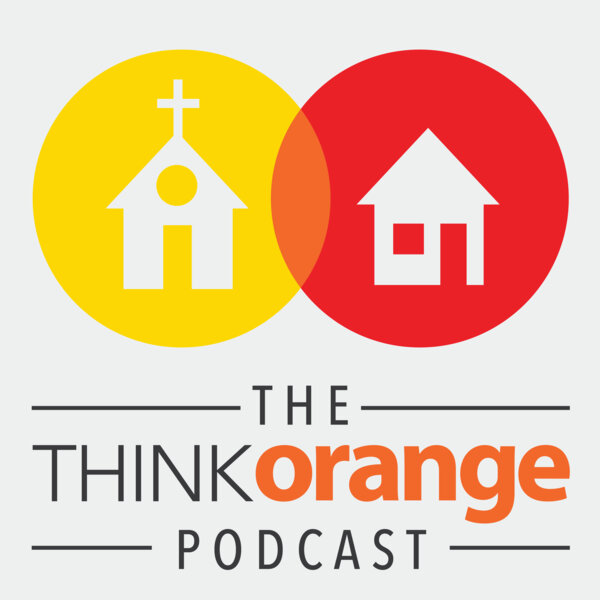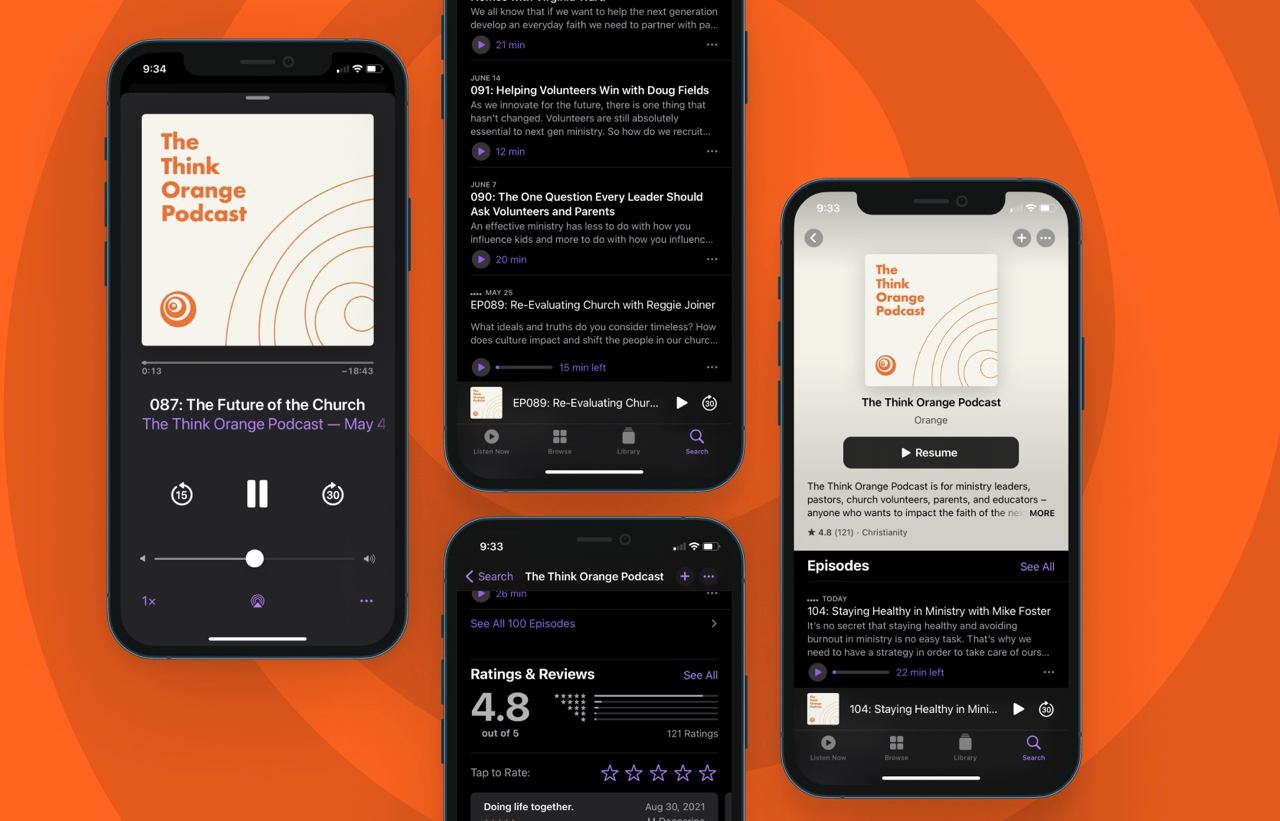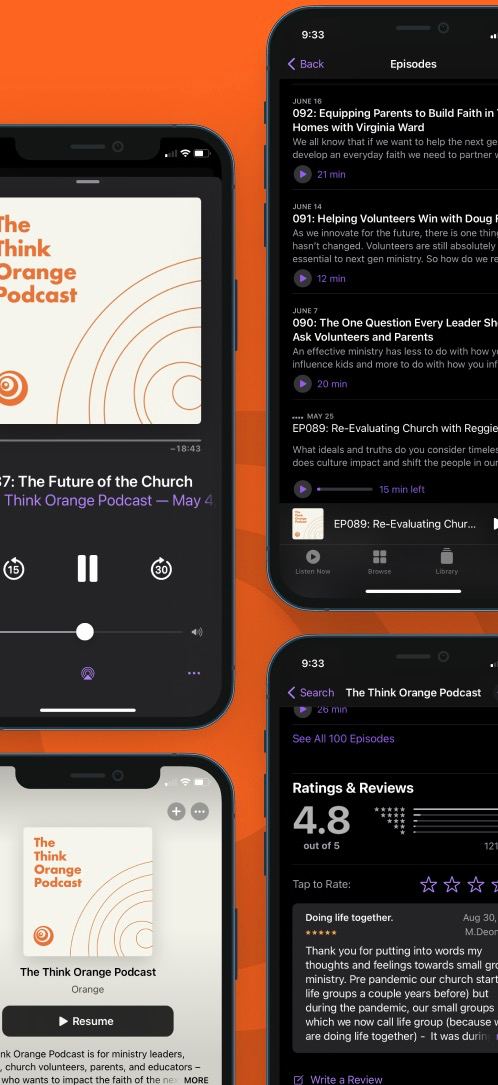Whether we realize it or not, stories are prevalent in all of our lives. They build our imaginations and shape how we process relational, cultural, and spiritual truths. In fact, the human brain is wired to think in narrative.
That’s why, on today’s episode of the Think Orange Podcast, we explore how storytelling can be a powerful tool for communicators to all age groups. First, we’re joined by Reggie Joiner, who unpacks how stories over time can give us perspective about a very big God. Then Robert Carnes, author of The Original Storyteller, dives into some practical ways church leaders can use stories to connect with their audiences starting this Sunday.
Topic Timeline:
The six things every kid needs over time (1:42)
Ashley’s storytelling tip: Find what about the story excites you and use that passion as you communicate (4:05)
Reggie Joiner talks about the power of stories over time (7:30)
Stories over time can expand a child’s imagination in a way that can shape his or her perspective (7:49)
Kids need family, cultural, and spiritual stories (8:05)
As a parent or ministry leader, your role is to reimagine yourself as a story collector, storyteller, and librarian (9:41)
Maybe God designed stories so collectively over time they could give us a deeper perspective of His universal truths and character (10:05)
The human brain is wired to think in narrative (11:00)
Without your imagination, you can’t see past what you already know, you can’t care how someone else feels, and you can’t hope beyond your present situation (11:39)
Fictional stories have the power to inspire ideas and build empathy (12:44)
Stories have the potential to stretch our perspectives about a very big God (15:00)
Dave and Ashley’s interview with Robert Carnes (19:50)
Four key elements that make up a good story (22:27)
- Characters
- Change
- Conflict
- Context
The story of the prodigal son as an example of these four elements (25:30)
Mistakes communicators make when it comes to storytelling (26:04)
Tips for understanding and knowing your audience better (28:58)
Helping younger audiences understand conflict in a story (32:02)
An explanation of the hero’s journey (33:45)
In a church context, the audience is the hero, the communicator is the mentor, and Jesus is the resolution (36:02)
One thing communicators can do this Sunday to improve their storytelling (41:23)
Dave and Ashley’s final thoughts (43:43)






